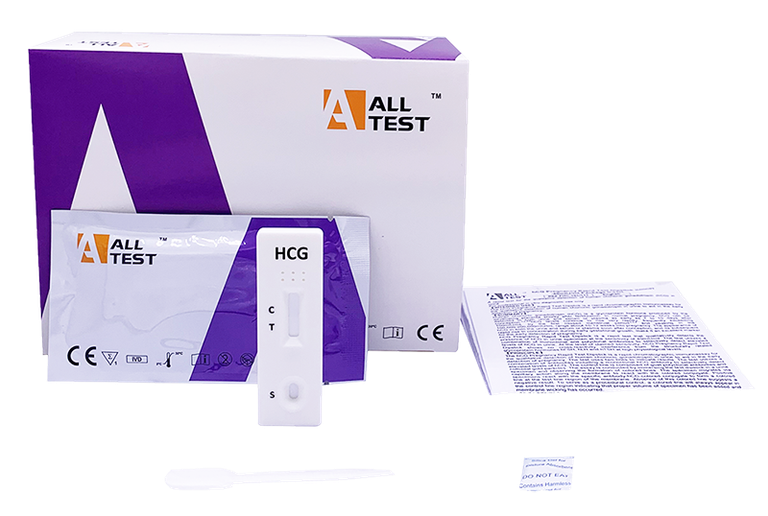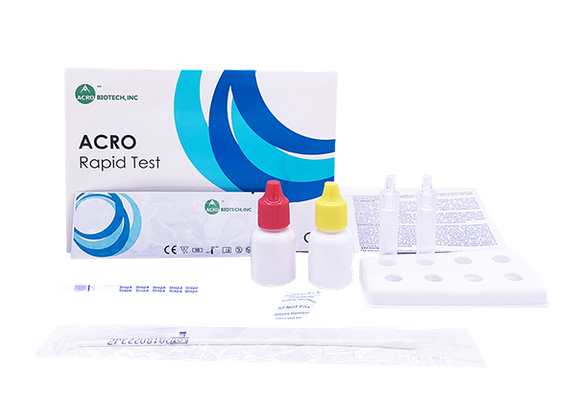STANDARD M10 MTB/NTM
STANDARD M10 MTB/NTM is a multiplex real-time PCR test intended for use with STANDARD M10 system for the qualitative detection of M. tuberculosis complex (MTBC), and non-tuberculous mycobacteria (NTM) nucleic acids in human normal sputum or sputum sediment sample.

Generally
STANDARD M10 MTB/NTM is a molecular in vitro diagnostic assay that aids in the simultaneous detection and differentiation of MTBC and NTM DNA based on nucleic acid amplification technology, real-time PCR. STANDARD M10 MTB/NTM contains bacterial DNA extraction buffers and PCR reagents for the in vitro qualitative detection of MTBC and NTM bacterial DNA in human normal sputum or sputum sediment sample.
STANDARD M10 tests are used in combination with STANDARD M10 system consisting of a console (user interface) and one or more modules (cartridge analysis function). The system is a modular random access platform which can be easily scaled with up to 8 modules, offering a customized throughput.
Easy and simple test workflow
- All-in-one cartridge (nucleic acid extraction and PCR amplification)
- Minimal hands-on time, results available in 72 min
- Intuitive touch screen user interface
- Automated result interpretation, amplification curves provided
STANDARD M10 benefits
- Versatile and flexible solution ― suitable for any healthcare settings
- RT-PCR technology in one system
- Multiplex capability, with up to 11 targets + internal control
- Random access, scalable with up to 8 modules
Technical data
Products available | SD BIOSENSOR STANDARD M10 MTB/NTM Test |
Use | For in vitro diagnostic use |
Method | Real-time PCR amplification |
Sample type | Pretreated sputum or sputum sediment |
Instrument information | 155067 SD BIOSENSOR STANDARD M10 CONSOLE |
Time to result | 72 minutes |
Reading of the result | Automatic |
Storage | Between +2 and +28 oC |
Sensitivity | 100 % |
Specificity | 100 % |
Transportation | Between +2 and +28oC |
Additionally needed | STANDARD M10 instrumentation, STANDARD M10 Sputum Pretreatment Kit, Sample container, Screw capped tube, 0.067 M Phosphate/H20 buffer, Micropipette with filter tips, |
Country of origin | South Korea |
Registration | CE IVDD |
About Tuberculosis (TB) and NTM
Tuberculosis (TB) is an infectious disease, which is caused by infection with M. tuberculosis complex organisms. It spreads to new hosts through the air from patients who have respiratory tuberculosis disease. Individuals newly infected would get symptoms from TB within weeks to months. M. tuberculosis can cause disease in almost any tissue or organ in human body, such as lungs, kidneys, nerves, and bones. Among them, pulmonary tuberculosis, the lung tissue infection, accounts for the most.
NTM refers to mycobacteria except MTBCs and M. leprae. NTM may cause lung disease, lymphadenitis, skin-soft tissue-oste infection, and disseminated diseases. Unlike M. tuberculosis, NTM, the environmental saprophytic bacteria are free living, ubiquitously present in surroundings such as soil or water. For this reason, it was thought to be harmless environmental saprophytic and only dangerous to individuals with defective lung structure or the immunosuppressed, but recently, following facts increase concern for NTM infection; number of NTM disease incidence over last two decades has been risen, long term treatment with multiple antibiotics increases antibiotic resistance, and recurrence rate is high that leads to persistent chronic infection.
In general, drug-sensitive TB can be effectively treated with a standard multi-drug administration containing first-line antibiotics and second-line antibiotics. In contrast, the NTM bacteria have significant heterogeneity in their susceptibility to standard antituberculosis drugs. Therefore, the treatment for NTM diseases should be differ from the treatment for TB, and this is the reason why identification of MTBC and NTM is required.


